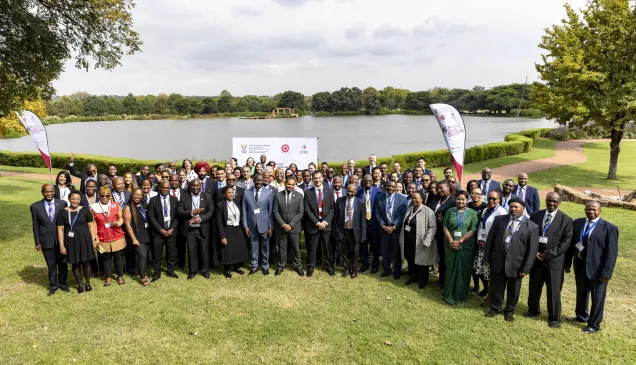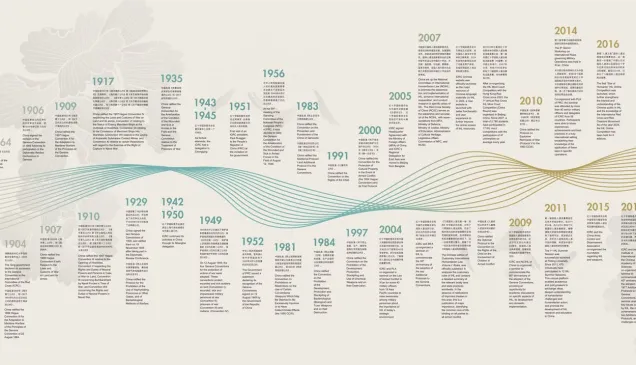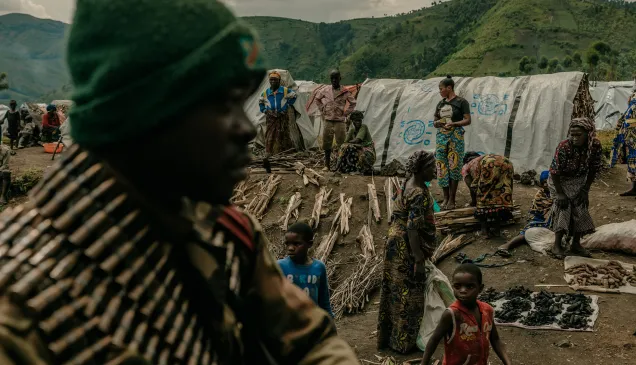After two years apart, Gaza families visit their loved ones in detention
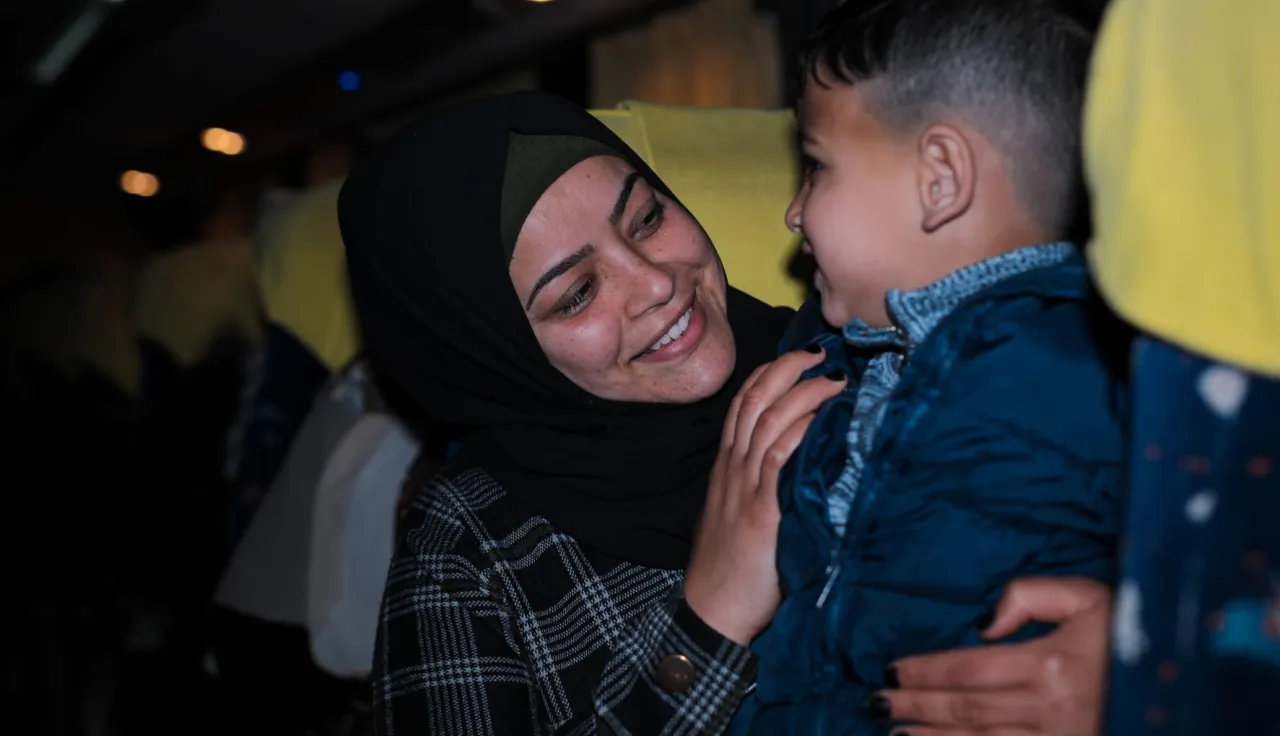
"I spent all night yesterday thinking of the moment I will finally see my dad again. I wanted to tell him about school, my friends and how difficult life is without him, but also how good of a football player I have become," says Ali, 16 years old.
After a suspension that lasted since COVID-19 restrictions were introduced two years ago, families from Gaza are finally able to visit their relatives in Israeli prisons.
Playing its role of neutral intermediary, the International Committee of the Red Cross (ICRC) facilitated the first visit to Nafha prison on Tuesday, 29 March 2022, when 37 wives, mothers, fathers and children got to see their loved ones face to face again.
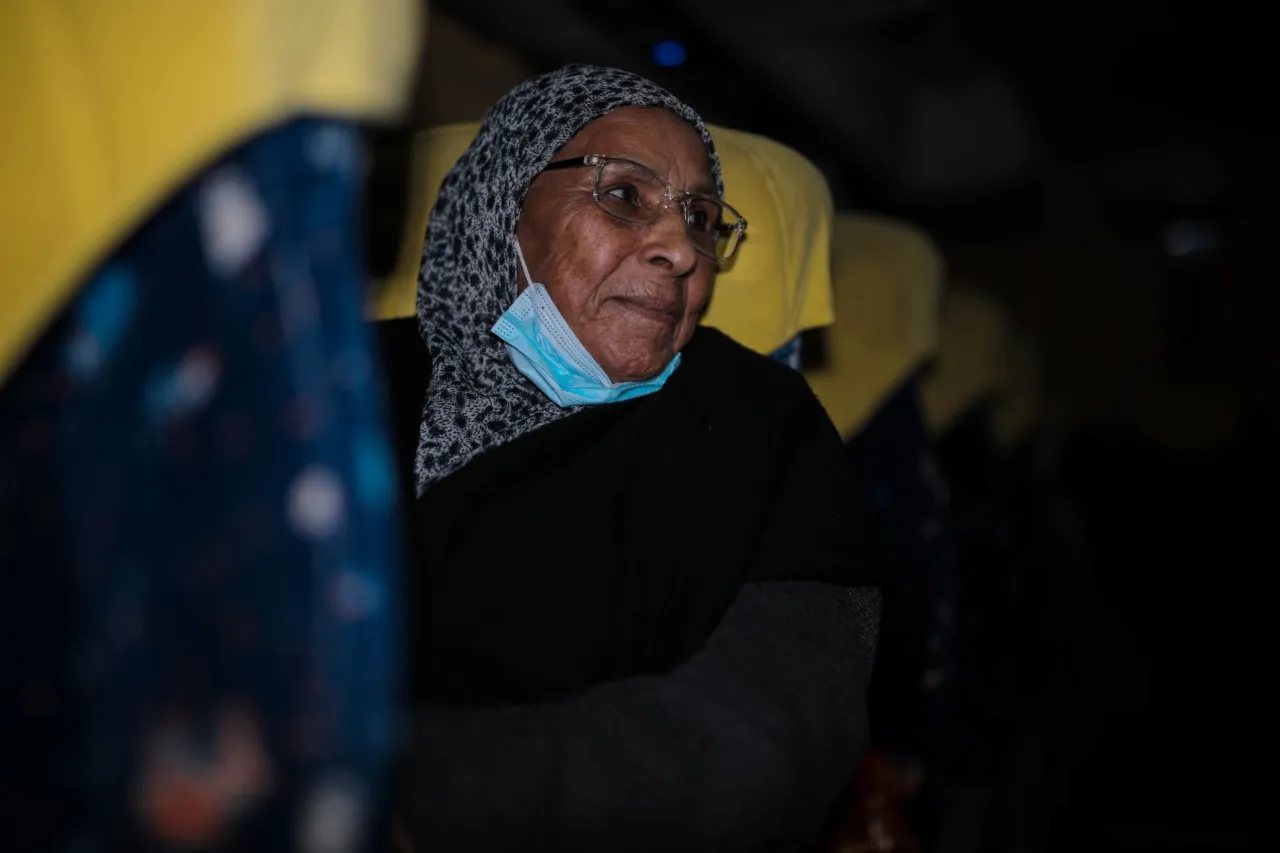
The families put on their best clothes like it was an Eid celebration and set out on their journey. The trip was long, starting from Rafah at 3am, crossing through Erez crossing point at around 7am, and reaching Nafha prison around 8:30am.
The families were excited and anxious. A storm of emotions crossed their faces when it was finally time to start the visit.
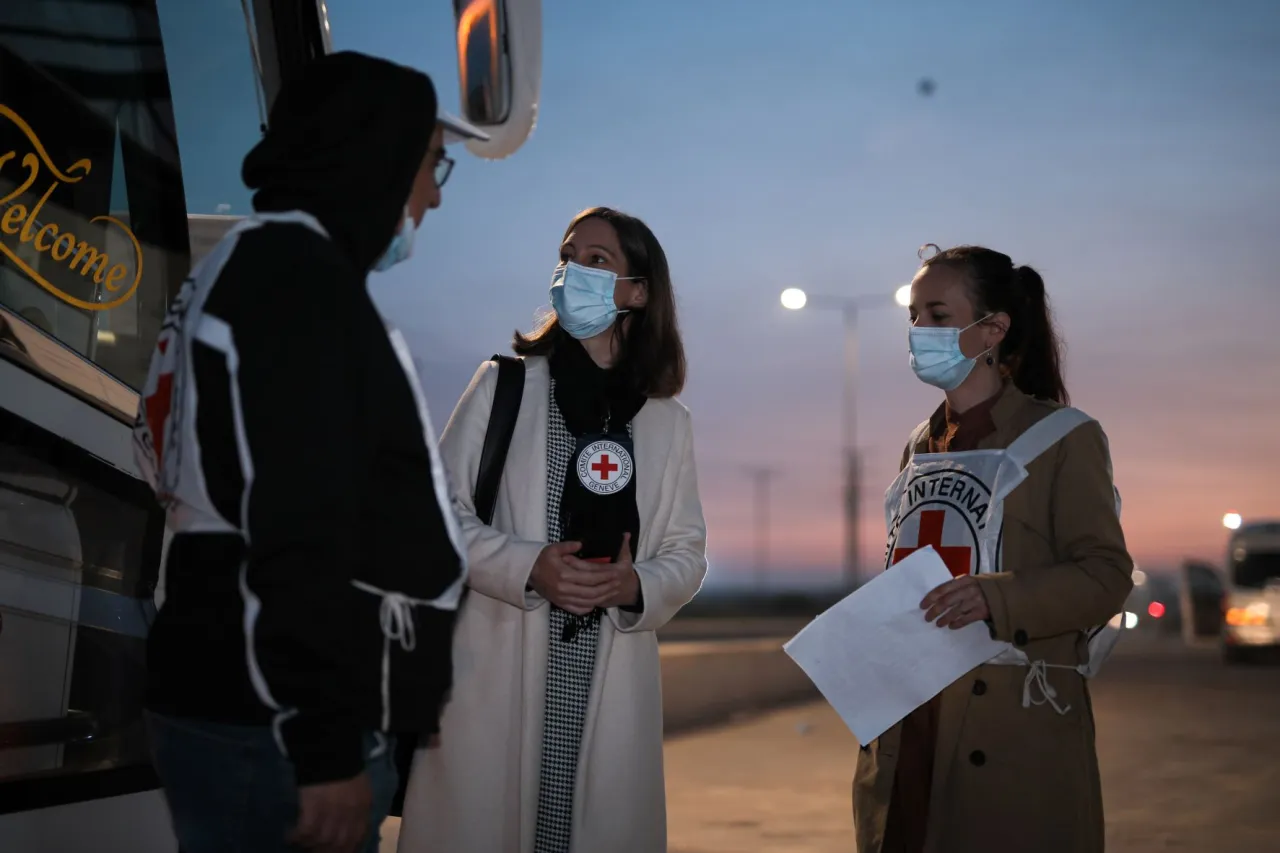
"We couldn't help sending each other kisses through the glass partition during the entire visit," says Seniora.
"When I saw my son after two years apart, I wished I could break the glass separating us. I wanted to hug him so bad," says Amal, another mother.
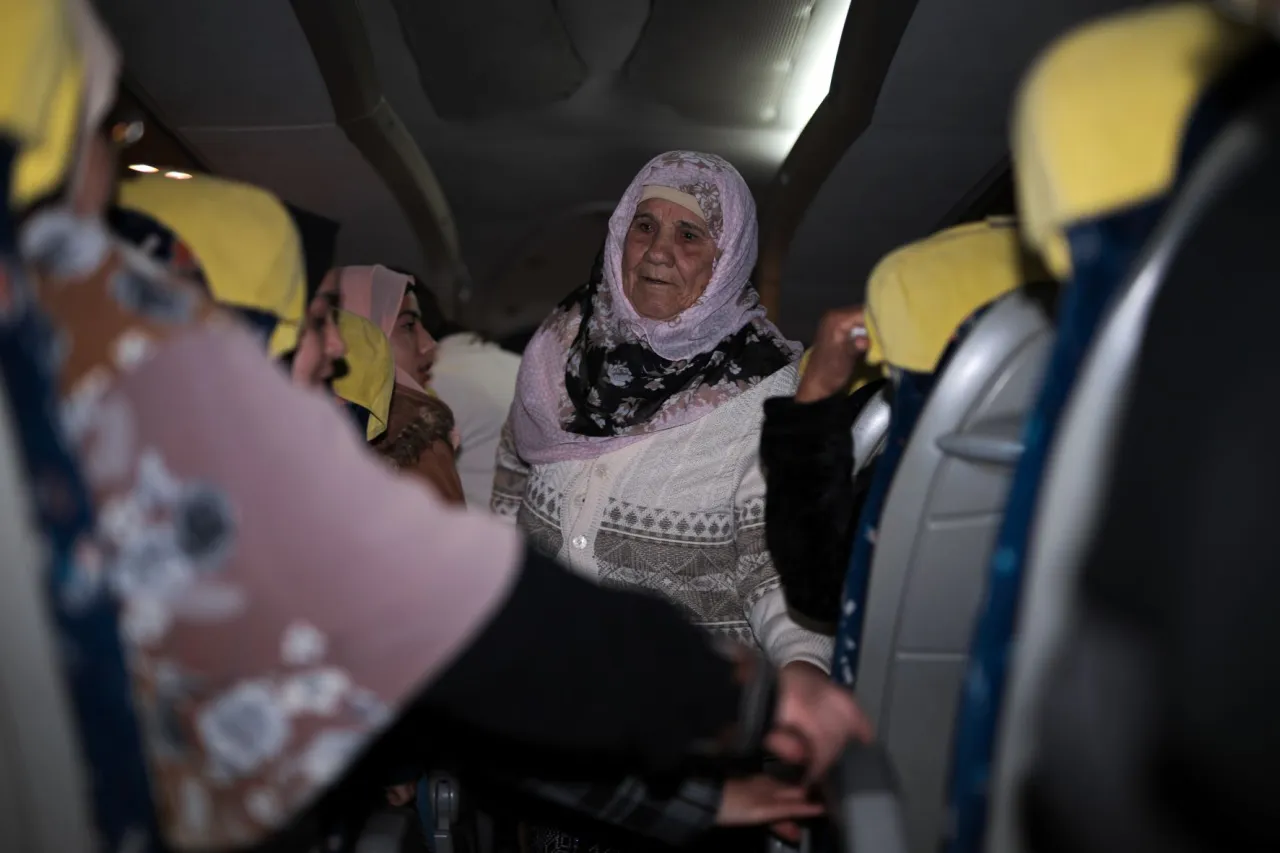
Physically exhausted, the families had to go back on the ICRC buses and return home. Having to depart from their loved ones once again left them feeling emotional, but also looking forward to the next visit.
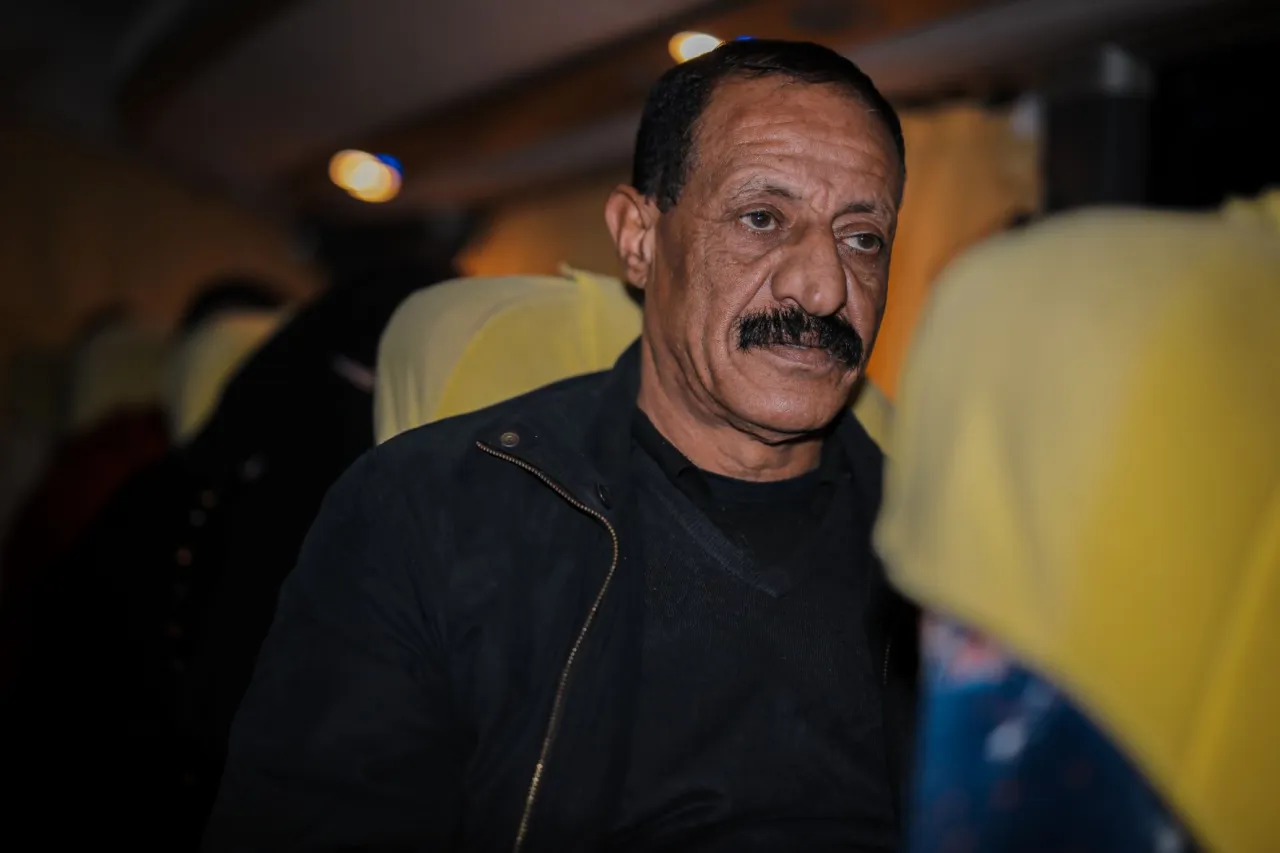
"We would like to extend a heartfelt thanks to all who were involved in making this happen, and within our role as neutral intermediary, are happy to facilitate this first visit after two years," says Mirjam Lea Mueller, ICRC Head of Sub-Delegation in Gaza.
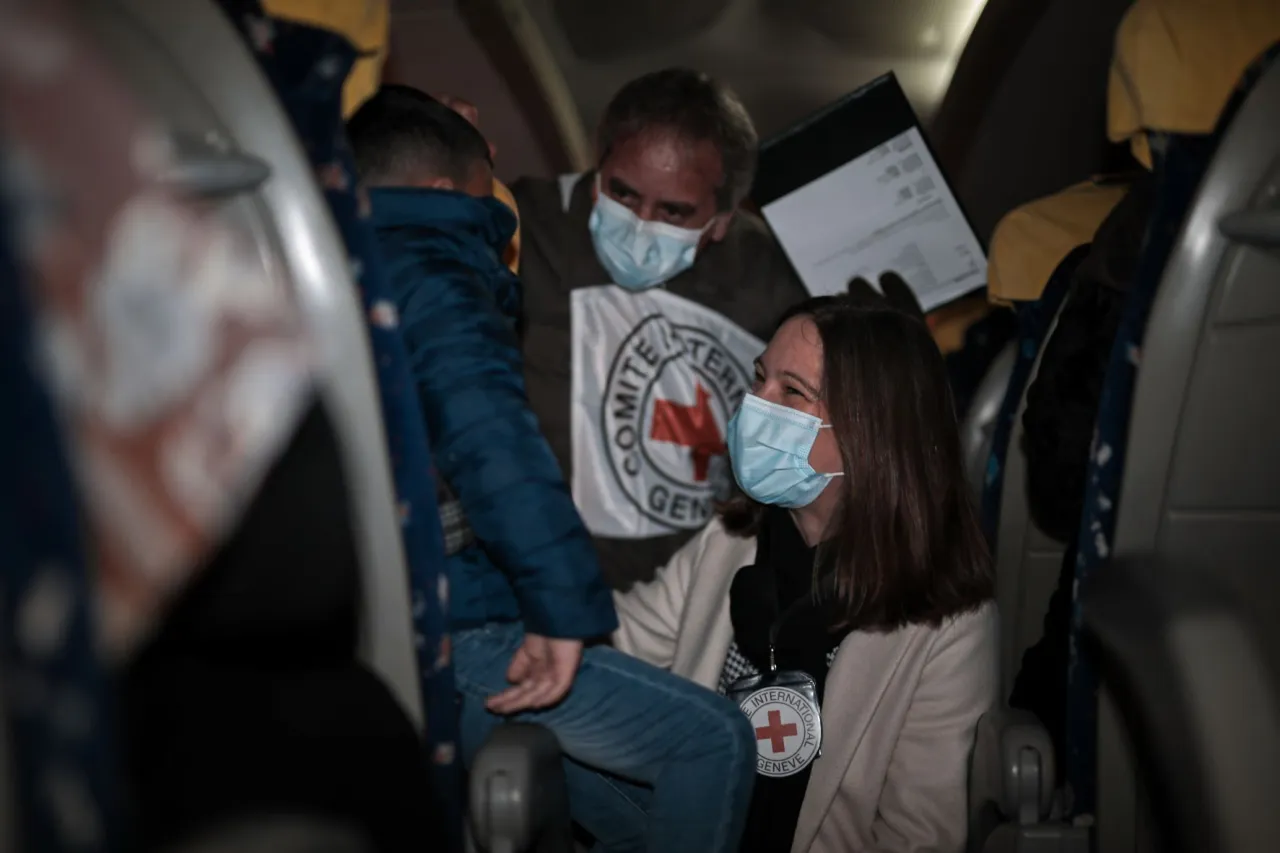
Family visits to Palestinian detainees in Israeli detention facilities are an emotional lifeline, not just for those behind bars, but also for the relatives left behind.
Since 1968, the ICRC has been running a family visit program (FVP) that enables protected persons living in the occupied territories - the Gaza Strip, West Bank including East Jerusalem, and Golan - to visit their relatives in Israeli detention facilities.

